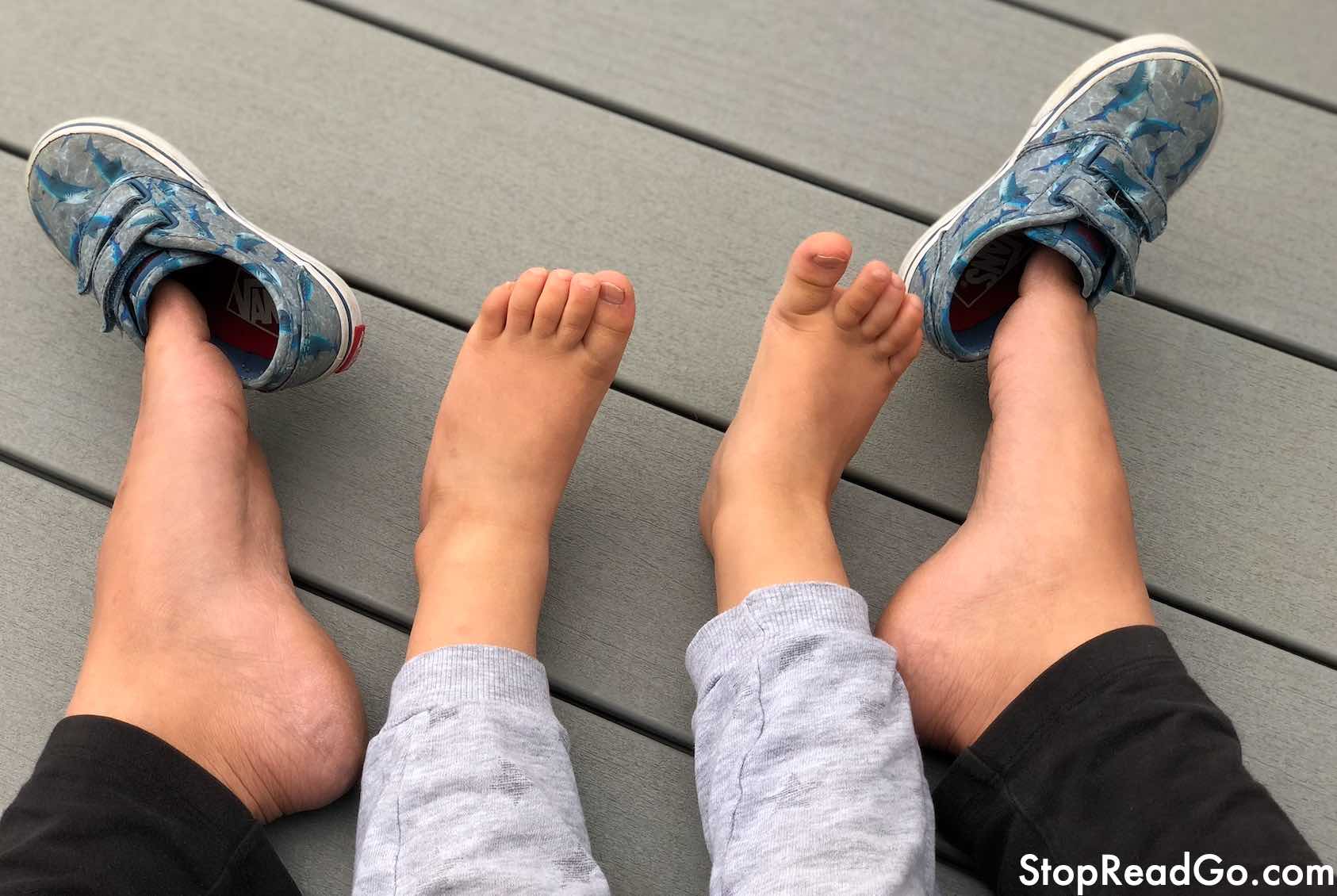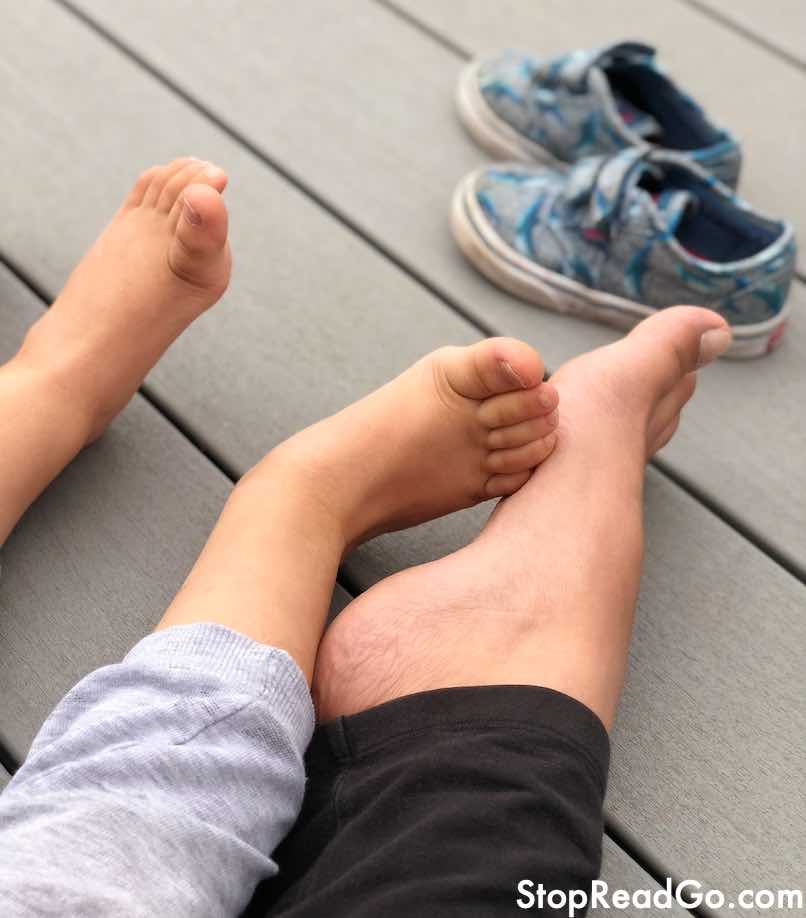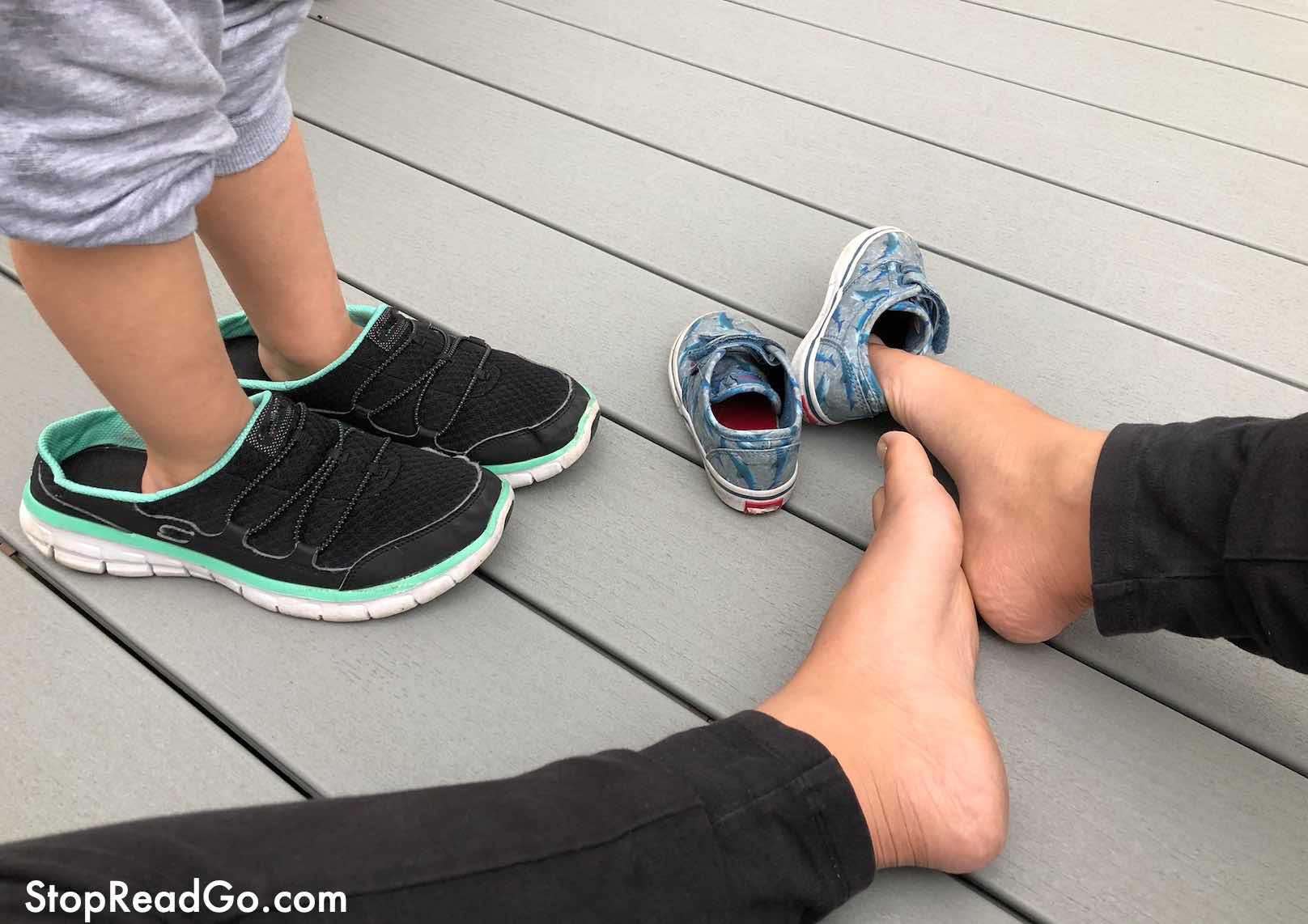Have you ever seen a picture of a baby or toddler wearing the mother’s or father’s shoes?
Their tiny little feet look adorable in those extra-large shoes. Dreaming of growing up to be just like you…
But I bet you haven’t seen a picture of a parent wearing their kid’s shoes, right? Well, to be fair, it is kind of difficult to put on those tiny shoes when your feet look gigantic next to them (believe me, I tried).

However, this is what I feel a lot of parents forget to do. We have to put ourselves in their shoes and see the world through their eyes.
What is that mean, really? Try (or attempt) to see what they see, hear what they hear, smell what they smell, touch what they touch, and taste what they taste.

Understand that they just arrived into this world a couple of years ago and everything is brand new to them. By comparison, the earth and the universe have existed for billions of years and so there is so much to learn and explore. While something may seem boring or routine to a grown adult, to a child, it may be the most amazing thing he has ever seen, heard, touch, tasted, or smelled.
Everything is a new experience to them and they might need to experience it several times to learn it or figure out how it works. That is how they learned to walk and talk, with repetition and practice.
Everything we do is experienced via our senses and we learn through repeated exposure to it. Over time, as we grow older, our brains become more efficient and begin to take short cuts to accomplish everyday tasks faster and better. The downside to this: We start to miss out on certain details and stop appreciating the simple things in life. But a child still does, and we should be more considerate of this.
How can we help?
First of all, slooooow down, don’t rush. Be more observant and patient. Listen to them. Be more compassionate. Explain everything you see and why things are the way they are. Explain everything you do and why you are doing it. If you don’t know something, google it!
Here are a few examples:
- get down to their eye-level when talking to them (kneeling, squatting, sitting on the floor…you get the picture)
- talk clearly and slowly. Don’t use slang words or catch phrases or sayings that don’t have literal meaning (I remember watching a funny video where a baseball coach said to a little kid, “eye on the ball” and the poor little thing literally put his eye on the ball).
- walk at a turtle’s speed without rushing them and letting them make frequent stops to pick up a couple of rocks along the way. I know, it might take forever to get to your destination and sometimes you might not even make it there.
- showing them how to do even the simplest tasks, and allowing them to try it for themselves, even if it takes them 10x longer to do and even if they don’t do it quite right. For example, putting clothes in the laundry machine or “sweeping” the floors.
- paying attention to them when they are talking to you, even if they are interrupting a conversation you are having with someone else.
- acknowledging and even celebrating his small accomplishments, because to him, these are big.
- explaining something, even if it seems obvious to you, such as why do we cut with a knife or why do we eat soup with a spoon instead of a fork.
- respecting their fears and their tears, even if it seems insignificant. Sometimes all they need is a hug.
- not pushing them into something they don’t want to do, even if it seems rude or even if you already paid for a class or an event.
- doing your best to decipher what they are saying, meaning or asking, to minimize frustrations and avoid tantrums.
- asking their opinion and giving them simple choices (even if it’s as simple as: Which color shirt do you want to wear, the green one or the blue one?).
- setting up your house with kid-sized furniture and even buying or building a stepping stool/staircase to reach the countertop so they can also be at your level when you are in the kitchen or the bathroom.
- allowing them to turn on and off a light switch until they get bored. This is like magic to them, they are not necessarily doing it to annoying you or to waste energy.
- Don’t assume that because they are small they can’t possibly understand something complex.
- Always include them in the conversation, they are people too. Don’t ignore them as if they don’t exist or because you think they don’t understand what you are talking about. Remember they are always listing to you even if you are not speaking to them.
- Similarly, do not assume that they understand something because you have said it to them multiple times. Maybe you need to explain it better or differently or it just may take a couple of times to sink in.
(This list could go on and on, but each of this items could become a blog on its own. So keep an eye on upcoming posts on these different important topics).
Who knows, you might even start to better appreciate the wonderful world we live in and the little things that make life possible. If only we look at the world through our children’s eyes.

